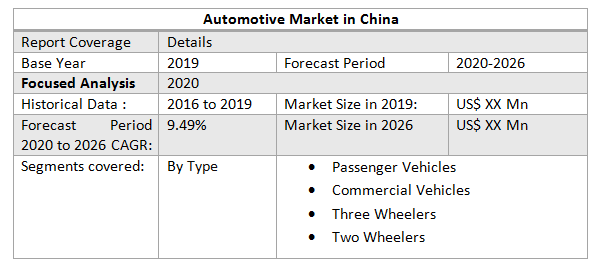Beyond BMW And Porsche: Analyzing The Broader Automotive Market In China

Table of Contents
The Rise of Domestic Chinese Automakers
The narrative of China's automotive industry is increasingly dominated by the remarkable rise of domestic automakers. Brands like Geely, BYD, and Great Wall Motors are no longer playing catch-up; they're actively shaping the market. Their success stems from a multi-pronged strategy:
- Value-driven propositions: Domestic brands offer competitive features and quality at price points that resonate with a broad range of Chinese consumers.
- Technological leapfrogging: They're aggressively investing in electric vehicles (EVs), autonomous driving technology, and other cutting-edge innovations, often surpassing international competitors in specific areas.
- Targeted marketing: Strong domestic branding and marketing campaigns, often leveraging social media and understanding of local cultural nuances, contribute significantly to their market penetration.
Government support, including subsidies and favorable policies, has also played a crucial role in fostering the growth of these domestic players. For instance, government incentives for EV adoption have significantly boosted BYD's sales and market share. Recent statistics show that domestic brands now account for a significant percentage of total China car sales, a testament to their increasing competitiveness. These automakers' success demonstrates that the Chinese automotive market is far from solely dependent on international luxury brands.
The Electric Vehicle (EV) Revolution in China
China is not just a major player in the global EV market; it's leading the charge. The government's proactive support, including substantial subsidies for EV purchases and massive investments in charging infrastructure, has created a fertile ground for EV adoption. This has fueled intense competition between both domestic and international EV manufacturers.
- Domestic Champions: BYD, NIO, and XPeng are leading the way in developing and marketing innovative EVs tailored to the Chinese market.
- International Players: Tesla has established a significant presence, while other international brands are racing to catch up.
Consumer preferences are also shifting rapidly towards EVs, driven by government incentives, environmental awareness, and the technological appeal of these vehicles. Data reveals a dramatic increase in EV sales, with significant market share gains year-on-year. The expansion of charging infrastructure is another crucial factor in driving this electric revolution. The Chinese automotive market is rapidly transforming into a powerhouse of electric mobility.
Understanding Consumer Preferences in China's Automotive Market
China’s automotive market is far from homogenous. Consumer preferences vary significantly across different segments:
- Luxury Segment: This segment remains dominated by international brands, but domestic players are making inroads with increasingly sophisticated and luxurious offerings.
- Budget Segment: Domestic brands thrive in this segment, focusing on affordability and essential features.
- Family Segment: Space, safety, and fuel efficiency are key considerations, with a growing demand for SUVs and MPVs.
Social media significantly influences purchasing decisions, with online reviews and influencer marketing playing a crucial role. Brand reputation and after-sales service are also paramount considerations for Chinese car buyers. Generational differences also impact preferences, with younger buyers tending to favor technologically advanced and eco-friendly options. Understanding these diverse consumer needs is crucial for success in China's automotive market.
Challenges and Future Trends in China's Automotive Market
Despite its phenomenal growth, China's automotive market faces significant challenges:
- Supply Chain Disruptions: Global events can impact the availability of parts and components.
- Intense Competition: The market is fiercely competitive, with both domestic and international players vying for market share.
- Evolving Regulations: The regulatory landscape is constantly evolving, requiring companies to adapt quickly.
However, technological advancements present exciting opportunities. Autonomous driving and connected car technologies are poised to transform the industry, while sustainability concerns are driving the shift towards EVs and hybrid vehicles. Future trends point towards continued growth, but with a greater emphasis on electrification, technological sophistication, and tailored consumer experiences. Market segmentation will become even more pronounced, with niche players catering to increasingly specific consumer needs.
Navigating the Complexities of China's Automotive Market
This analysis reveals the dynamism and complexity of China's automotive market, a landscape that extends far beyond the familiar names of BMW and Porsche. The rise of domestic automakers, the rapid adoption of EVs, and the diverse consumer preferences are reshaping the industry. Understanding these factors, along with the inherent challenges and future trends, is critical for anyone seeking to participate in this lucrative market. To fully grasp the potential within this dynamic sector, further research into specific market segments within China's automotive market is crucial. Understanding the intricacies of China's car market is key to success in this rapidly evolving landscape.

Featured Posts
-
 Ufc Fight Night 220 Burns Vs Morales Everything You Need To Know
May 19, 2025
Ufc Fight Night 220 Burns Vs Morales Everything You Need To Know
May 19, 2025 -
 Severe Tornadoes Cause 25 Fatalities Massive Damage In Two States
May 19, 2025
Severe Tornadoes Cause 25 Fatalities Massive Damage In Two States
May 19, 2025 -
 Justyna Steczkowska Niespodziewany Taniec W Reczniku Do Przeboju Eurowizji
May 19, 2025
Justyna Steczkowska Niespodziewany Taniec W Reczniku Do Przeboju Eurowizji
May 19, 2025 -
 Federal Debts Impact On Mortgage Borrowers A Looming Crisis
May 19, 2025
Federal Debts Impact On Mortgage Borrowers A Looming Crisis
May 19, 2025 -
 Eurovision Grand Final Hosts Sudden Withdrawal Creates Chaos
May 19, 2025
Eurovision Grand Final Hosts Sudden Withdrawal Creates Chaos
May 19, 2025
